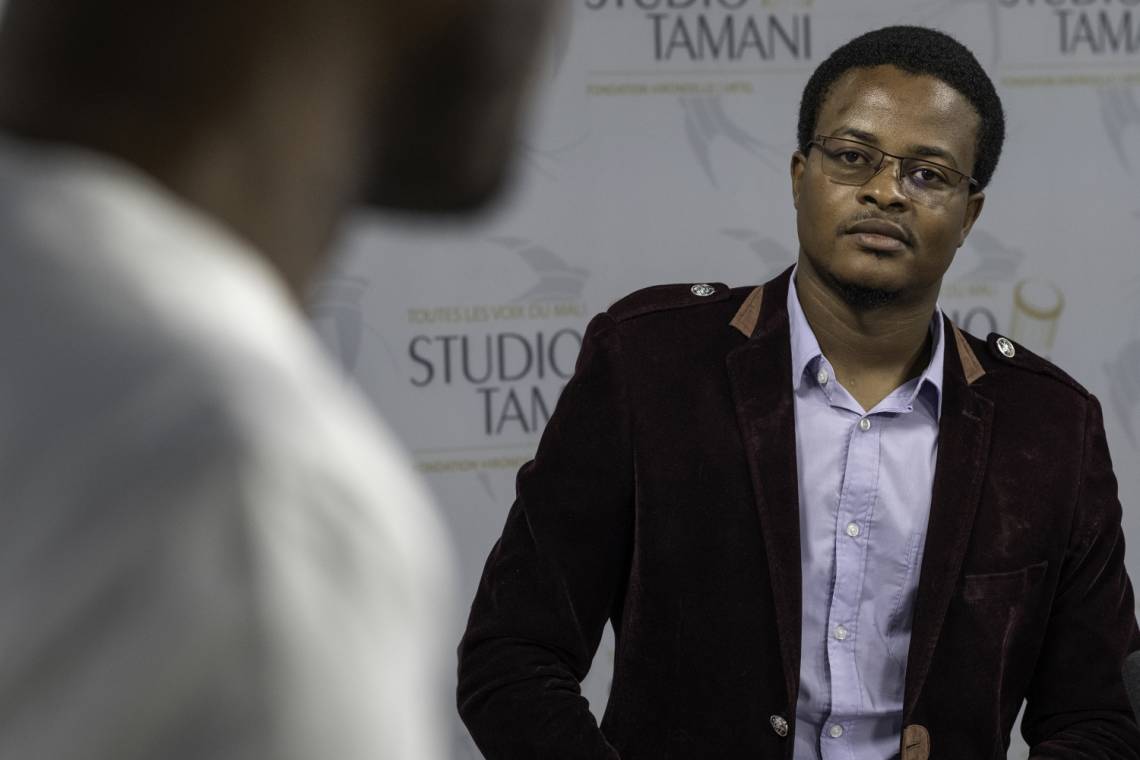Mouhamadou Touré is editor-in-chief of Studio Tamani, the media of the Hirondelle Foundation in Mali. According to him, the media must listen more to the needs of the public regarding the environment in order to contribute to the search for relevant solutions in Mali. This interview is taken from our 10th publication "Mediation", available at this link.
Malians suffer a lot from the effects of climate change while contributing very little to carbon pollution. In this context, what are their information needs on environmental issues?
Mouhamadou Touré : Today, Malians live and witness the dramatic effects of climate change: rising temperatures, advancing desert, soil degradation, disappearance of animal species including elephants ... What they are asking the media is to explain the causes and the responsibilities, which are also shared. Of course, the carbon emissions of rich countries are the main source of the problem, but Malians also contribute to it: abusive cutting of wood to heat their food, lack of maintenance of the tree plantations that they implement to compensate for these cuts... The media can help raise awareness of these issues in Mali, focusing on solutions.
But with the multiple crises facing the country, there are other issues of concern in Mali. Is the public interested in environmental issues?
It depends on how the subject is treated. Climate change is like terrorism in one respect: the media talk about it so much, and yet the situation is getting worse, that the population ends up not believing that there is a solution and tends to turn away from these subjects. At the same time, the institutional solutions proposed in Mali are often modelled on the European model (thermally insulated concrete buildings, walking or cycling in the city...) whereas these solutions are not efficient here. In this context, the media have the power to organize a real debate on the specific way in which Mali could adapt to climate change. This requires an analysis of the needs of the population. To do this, we need to get out of an emergency logic where we cover the latest events day after day, and take the time to listen to the population.
The "Women's Rights" project, conducted jointly by Studio Tamani and the Institut Malien de Recherche Action pour la Paix (IMRAP), gave us the opportunity to do so. Divided into several themes including "Women and Climate Change", this project allowed journalists and researchers to listen to focus groups of Malian women for several weeks, first alone and then in the presence of men. Then from these discussions we produced several journalistic formats: testimonies, portraits, documentaries, motion design, debates... And we broadcast them on several channels: radio, television, social networks... We note that this method of work allows Malians, and even the most reluctant, to dialogue.
How can information on environmental issues be adapted to meet this need for solutions?
When it comes to the climate and the environment, Malians are not so much looking ahead to 2030 or 2050, they are expressing their concerns of today: cutting wood to make food, putting fertilizer in the fields to improve the harvest... And they are much more interested in local, Malian or Sahelian solutions than in solutions from the North. This is why it is interesting to co-produce programs on the subject with Fondation Hirondelle's media in neighboring countries: Studio Yafa in Burkina Faso and Studio Kalangou in Niger. And above all, we need to talk about the ecological crisis also in terms of benefits and opportunities. Is there an employment problem in Mali? It is obvious that waste recycling is a sector that can develop and bring a lot of work. In short, the media have a role to play in highlighting local solutions that can respond to today's local problems.




